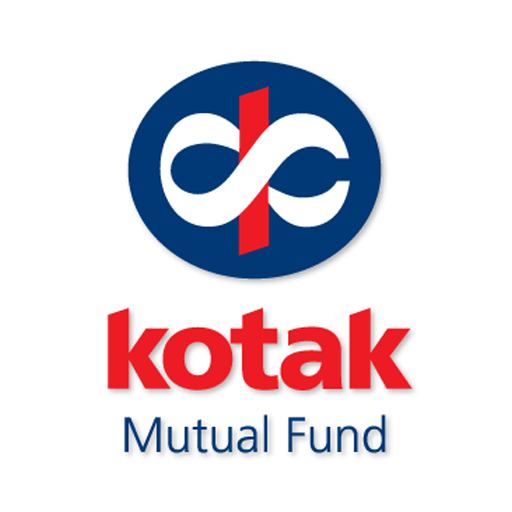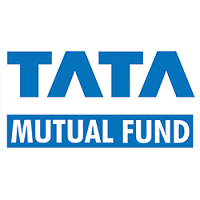What is a Mutual Fund?
A mutual fund is a type of investment vehicle that pools money from multiple investors to invest in a diversified portfolio of assets such as stocks, bonds, money market instruments, and other securities. It is managed by a professional fund manager or team, who make investment decisions on behalf of the investors.
Here's how a Mutual Fund works
Pooling of Funds
Investors contribute money to the mutual fund, and this pooled capital is used to buy a diversified mix of assets.
Diversification
Mutual funds typically invest in a variety of securities to spread risk. This diversification helps reduce the impact of poor performance from any single investment.
Professional Management
A professional fund manager or team is responsible for selecting and managing the fund's investments. They analyze market trends, economic conditions, and individual securities to make informed decisions.
Investment Objectives
Mutual funds can have various objectives, such as growth, income, or a combination of both. Investors can choose funds based on their investment goals and risk tolerance.
Net Asset Value (NAV)
The value of a mutual fund's assets is calculated daily, and this value per share is known as the Net Asset Value (NAV). The NAV is used to determine the price at which investors can buy or sell fund shares.
Liquidity
Mutual funds provide liquidity to investors, as they can generally buy or sell shares on any business day. The fund company buys back shares from investors who want to sell and issues new shares to those who want to buy.
Fees and Expenses
Mutual funds charge fees and expenses to cover the costs of managing the fund. These fees can include management fees, administrative fees, and other operating costs. They are expressed as a percentage of the fund's assets and are deducted from the fund's returns. It's important to consider these costs when evaluating the overall performance of a mutual fund.
Risk and Return
As with all investments, mutual funds come with varying levels of risk and potential return. Higher-risk funds (like equity funds) can offer higher potential returns but also come with higher volatility. Lower-risk funds (like bond funds) generally offer more stability but may have lower potential returns.
Types of Mutual Funds
There are various types of mutual funds, including equity funds (investing in stocks), bond funds (investing in bonds), money market funds (investing in short-term, low-risk securities), index funds (tracking specific market indices), and more.
Investor Behavior
The behavior of other investors can indirectly affect the safety of your mutual fund investment. In times of market volatility, panic selling by other investors can lead to rapid declines in fund values. Staying committed to your long-term investment goals can help mitigate the impact of such behavior.
Market Fluctuations
Like any investment, the value of mutual funds can fluctuate based on market conditions. Economic downturns or market crashes can impact the value of your investment, especially in equity funds.
Research and Due Diligence
It's crucial to research and choose mutual funds that align with your investment goals, risk tolerance, and time horizon. Historical performance, fund objectives, fees, and the experience of the fund managers should all be considered.
Regulation
In many countries, mutual funds are regulated by financial authorities to ensure transparency and protect investors' interests.
Long-Term Perspective
Mutual funds are often seen as long-term investments. While you can buy and sell units on a daily basis, their value can fluctuate in the short term. Holding onto your investment over time can help smooth out the effects of market volatility.
It's important for investors to carefully research and understand the mutual funds they're considering, including their investment strategy, historical performance, fees, and the experience of the fund management team. Each investor's financial situation, goals, and risk tolerance should guide their decision to invest in a particular mutual fund.
Types of Mutual Fund?
In India, there are several types of mutual funds available to investors, catering to various investment objectives, risk profiles, and financial goals. Here are some common types of mutual funds available in India:
Equity Funds
- Large-Cap Funds: Invest predominantly in large and established companies.
- Mid-Cap Funds: Invest in medium-sized companies with growth potential.
- Small-Cap Funds: Invest in smaller companies with higher growth potential but also higher risk.
- Multi-Cap Funds: Invest across companies of different market caps, providing diversification.
- Sector Funds: Focus on specific sectors like banking, technology, healthcare, etc.
- Thematic Funds: Invest in companies related to specific themes like consumption, infrastructure, etc.
- Dividend Yield Funds: Invest in stocks of companies with a history of paying dividends.
Debt Funds
- Liquid Funds:Invest in very short-term debt instruments for liquidity and safety.
- Short-Term Funds: Invest in short-term debt securities with slightly higher risk than liquid funds.
- Fixed Maturity Plans (FMPs): Close-ended debt funds with a fixed maturity date and fixed portfolio.
- Corporate Bond Funds: Invest in corporate bonds, providing potentially higher yields.
- Government Bond Funds: Invest in government securities like treasury bills and bonds.
- Dynamic Bond Funds: Adjust the portfolio duration based on interest rate expectations.
- Income Funds: Aim for regular income by investing in a mix of debt instruments.
- Gilt Funds: Invest in government securities, mainly providing safety and moderate returns.
- Liquid Plus Funds: Similar to liquid funds but with slightly longer maturity and potentially higher returns.
Hybrid Funds
- Balanced Funds: Invest in a mix of equity and debt instruments.
- Aggressive Hybrid Funds: Have higher equity allocation than balanced funds.
- Conservative Hybrid Funds: Have higher debt allocation with a small equity component.
- Debt-Oriented Hybrid Funds: Invest in a mix of debt and equity instruments with a higher debt allocation.
Additional Funds
- Index Funds: Replicate the performance of a specific market index like Nifty 50 or Sensex.
- Exchange-Traded Funds (ETFs): Similar to index funds but trade on stock exchanges like stocks.
- International Funds: Invest in overseas markets and companies, providing exposure to global markets.
- Fund of Funds (FOFs): Invest in other mutual funds, offering diversification across multiple schemes.
- Retirement or Pension Funds: Designed for long-term retirement planning, offering tax benefits.
- Gold Funds: Invest in gold-related assets like ETFs, offering exposure to the price of gold.
Tax-Saving Funds (ELSS)
Equity-Linked Savings Schemes (ELSS) offer tax benefits under Section 80C of the Income Tax Act. They primarily invest in equities.
Investors should carefully consider their investment goals, risk tolerance, and time horizon before selecting a specific type of mutual fund. It's advisable to read the fund's offer document, consult with financial advisors, and assess historical performance before making investment decisions.
Are Mutual Fund taxable?
Can Mutual Fund units be sold at any time?
Our Mutual Fund Partners










































Top Mutual Fund
|
Schemes |
1 Year |
3 Year |
5 Year |
10 Year |
|
Nippon India Large Cap Fund |
22.45% |
28.54% |
13.82% |
17.62% |
|
ICICI Prudential Bluechip Fund |
16.88% |
23.61% |
13.03% |
16.03% |
|
HDFC Top 100 Fund |
18.44% |
24.98% |
12.52% |
15.85% |
|
ABSL Frontline Equity Fund |
13.86% |
21.69% |
11.36% |
15.41% |
|
TATA Large Cap Fund |
14.00% |
21.87% |
11.57% |
13.81% |
|
Scheme |
1 Year |
3 Year |
5 Year |
10 Year |
|
HDFC Mid Cap Opportunities Fund |
31.33% |
33.85% |
16.75% |
22.69% |
|
Nippon India Growth Fund |
25.24% |
32.41% |
18.50% |
20.61% |
|
Quant Mid Cap Fund |
25.13% |
36.20% |
21.66% |
17.27% |
|
UTI Mid Cap Fund |
18.29% |
28.47% |
15.77% |
22.14% |
|
TATA Mid Cap Fund |
24.35% |
29.28% |
17.15% |
21.89% |
|
Scheme |
1 Year |
3 Year |
5 Year |
10 Year |
|
Nippon India Small Cap Fund |
34.99% |
44.62% |
21.96% |
29.63% |
|
Quant Small Cap Fund |
38.02% |
47.11% |
27.65% |
17.33% |
|
ICICI Prudential Small Fund |
23.48% |
40.18% |
20.15% |
18.97% |
|
HDFC Small Cap Fund |
38.67% |
41.27% |
17.38% |
21.32% |
|
TATA Small Cap Fund |
31.66% |
39.75% |
- |
- |
|
Scheme |
1 Year |
3 Year |
5 Year |
10 Year |
|
HDFC Mid Cap Opportunities Fund |
31.33% |
33.85% |
16.75% |
22.69% |
|
Nippon India Growth Fund |
25.24% |
32.41% |
18.50% |
20.61% |
|
Quant Mid Cap Fund |
25.13% |
36.20% |
21.66% |
17.27% |
|
UTI Mid Cap Fund |
18.29% |
28.47% |
15.77% |
22.14% |
|
TATA Mid Cap Fund |
24.35% |
29.28% |
17.15% |
21.89% |
|
Scheme |
1 Year |
3 Year |
5 Year |
10 Year |
|
HDFC Flexi Cap Fund |
22.15% |
31.35% |
15.30% |
18.18% |
|
ABSL Flexi Cap Fund |
14.06% |
21.31% |
11.69% |
18.17% |
|
DSP Flexi Cap Fund |
15.92% |
21.92% |
13.41% |
17.27% |
|
Kotak Flexi Cap Fund |
14.19% |
20.31% |
11.50% |
17.28% |
|
Bandhan Flexi Cap Fund |
8.74% |
20.00% |
8.98% |
15.52% |
|
Scheme |
1 Year |
3 Year |
5 Year |
10 Year |
|
HDFC Tax Saver Fund |
20.22% |
26.25% |
12.06% |
15.99% |
|
Quant Tax Plan Fund |
16.17% |
34.46% |
23.42% |
23.89% |
|
Kotak Tax Saver Fund |
16.94% |
24.58% |
14.52% |
17.66% |
|
DSP Tax Saver Fund |
16.79% |
25.09% |
14.53% |
18.58% |
|
TATA India Savings Fund |
15.49% |
23.05% |
12.98% |
- |
|
Scheme |
1 Year |
3 Year |
5 Year |
10 Year |
|
DSP Natural Resources & New Energy Fund |
21.94% |
28.01% |
13.25% |
19.95% |
|
Sundaram Consumption Fund |
14.26% |
20.56% |
10.33% |
17.14% |
|
Invesco India Infrastructure Fund |
23.57% |
32.09% |
17.97% |
20.60% |
|
TATA Infrastructure Fund |
27.04% |
37.54% |
17.25% |
18.43% |
|
ICICI Prudential Infrustructure Fund |
37.19% |
42.63% |
19.29% |
18.70% |
